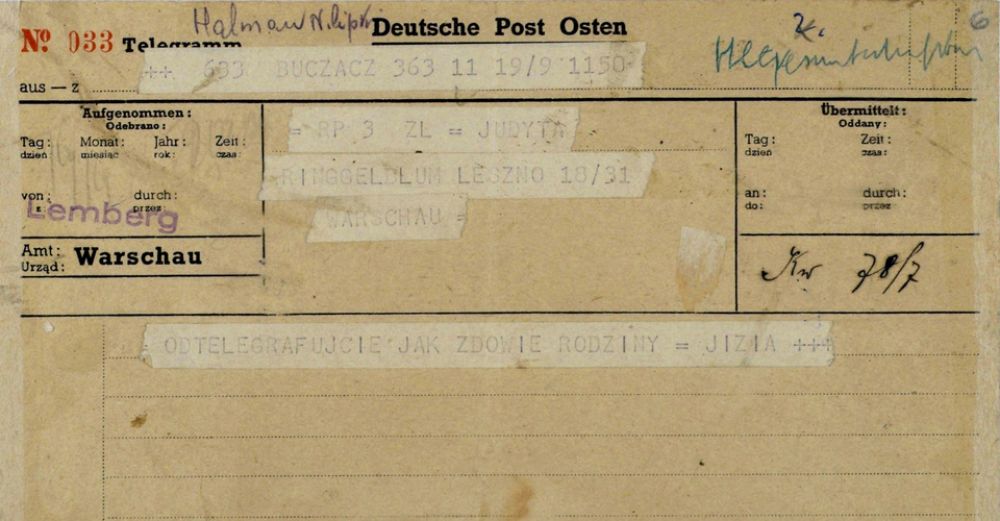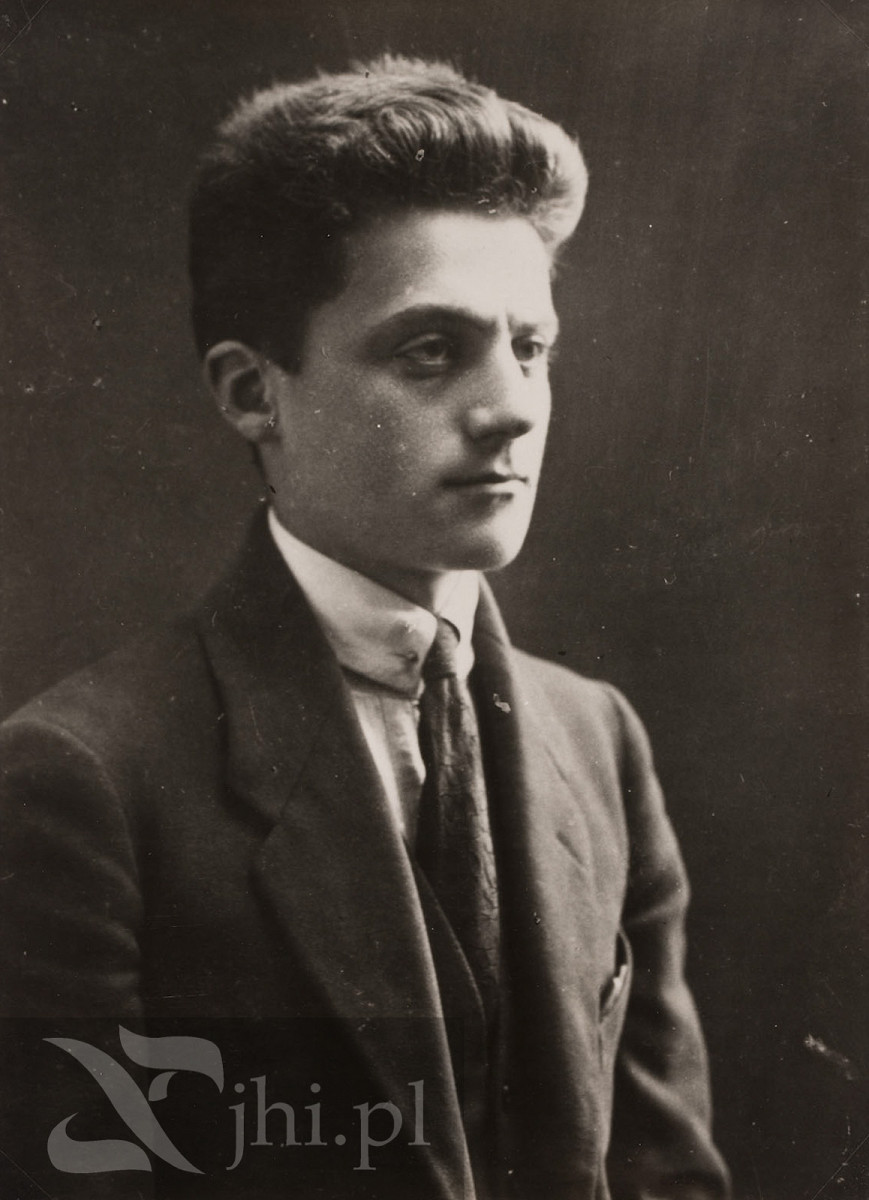- News
- Events
- Oneg Shabbat
- Collections
- Research
- Exhibitions
- Education
- Publishing Department
- Genealogy
- About the Institute
- Bookstore



Prominent Jewish politicians, members of Vienna parliament and originators of different currents of Jewish politics in the empire: Rabbi Szymon Schreiber and Rabbi Józef Samuel Bloch were connected with Buczacz. It was this city, from which an eminent Hebrew writer Szmuel Josef Czaczkies, known better as Szmuel Josef Agnon, later a winner of the Nobel Prize in Literarure, left for Palestine. In 1908 Szymon Wiesenthal was born also there. After the Second World War, he created a centre for documentation of Nazi crimes, thanks to which Adolf Eichmann was caught and judged. Finally, Emanuel Ringelblum came from Buczacz. He was a founder of the Underground Archive of the Warsaw Ghetto, a prominent social activist, promising historian and at present the person after whom the Jewish Historical Institute in Warsaw is named. Today is his 113th birth anniversary.
In 1920, he came to Warsaw and since then his personal and professional lives had been directly linked with this place. He wrote almost entirely about the Jews of Warsaw. However, he came from a completely different world, from a Galician town belonging to Austria-Hungary and having not more than 12 thousand residents. The Jews constituted more than half of the population. The other half consisted of the Polish and Ukrainians. Two ideological currents clashed among the Jews of Buczacz: on one hand Hasidism, which came along with love of rich Jewish folk culture, and on the other Haskalah (the Enlightenment), which during Ringelblum’s early childhood was not anymore aiming at assimilating the Jews, but at raising awareness of national distinctiveness.
The Ringelblums were not part of the elite of the town. Emanuel’s father, Fajbisz, traded in crops; his mother died when he was 12. He had a brother and two sisters. More is known only about one of the sisters, Giza, who was the first wife of a future historian of the Holocaust, Artur Eisenbach; she died during the war with their daughter Emilia. The Ringelblum Archive preserved one telegram from Giza sent from Buczacz on 19th September, 1942. She asks in it about „the health of the family”, most likely knowing about „the displacement action” of the Jews of Warsaw.
Ringelblum lived in Buczacz till he was 14. After the outbreak of the World War I, the Ringelblums fled with other refugees to the West: to Nowy Sącz. The reason for their escape was apparently fear from Cossacks’ pogroms. We know very little about Ringelblum’s childhood in Buczacz.
It is known that his father was not religious, but he regarded elementary education in this matter as necessity. Therefore, Emanuel went to a local cheder. He began his secular education at a Polish gymnasium, located in a former school at the Basilian Monastery. We also know that he was a member of a small Jewish Zionist organization, led by Cwi Heller. However, the real beginning of his political career can be traced back to the years spent in Nowy Sącz: he joined there a youth organization, Poale Zion party, which he was connected to till the rest of his life.
Today, Buczacz is a neglected, but picturesque town. The act of commemoration of its Jewish history is a small board of Szmuel Agnon, and as it comes to the creation of the Underground Archive of the Warsaw Ghetto all local guides remember about it.